Missouri Lawmakers Give Green Light to Impaired Driving
In Missouri alone, 870 people died in crashes in 2016, and 244 of them involved a drunk driver. Fatalities among teenagers in particular spike sharply during the period between Memorial Day and Labor Day, which has been dubbed the “100 Deadly Days of Summer” by the American Automobile Association. “This must stop,” said Meghan Carter, Executive Director for MADD Missouri.
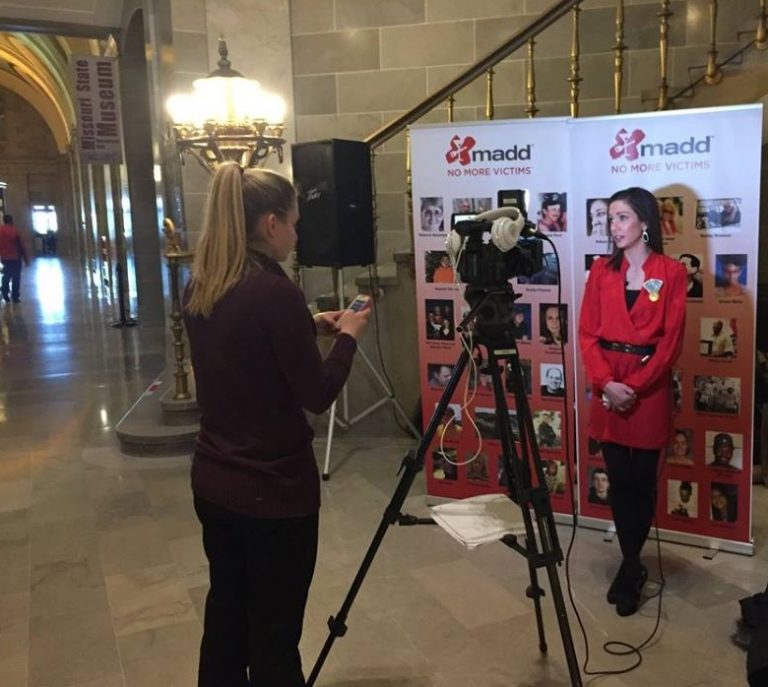
Mothers Against Drunk Driving advocates for the use sobriety checkpoints as an important tool for law enforcement in their efforts to keep our roadways safe. Some Missouri lawmakers have recently attempted to discredit the value and effectiveness of sobriety checkpoints. Missourians are headed into the second fiscal year in a row without allocated funding for sobriety checkpoints, but not because the funding isn’t available.
A Tough Fight from the Beginning Unfortunately, Missouri lawmakers added a line item restriction of no more than $1 to be spent on sobriety checkpoints, out of the $20 million federal grant Missouri receives from the National Highway Traffic Safety Administration. This spending limit was passed into Missouri law for the first time in 2017 and sadly, again this year. However, Mothers Against Drunk Driving (MADD) Missouri fought to the bitter end of a losing battle to restore funding for this lifesaving law enforcement tool, petitioning lawmakers in the capitol through every step of the budget process.
Unfortunately, Missouri lawmakers added a line item restriction of no more than $1 to be spent on sobriety checkpoints, out of the $20 million federal grant Missouri receives from the National Highway Traffic Safety Administration. This spending limit was passed into Missouri law for the first time in 2017 and sadly, again this year. However, Mothers Against Drunk Driving (MADD) Missouri fought to the bitter end of a losing battle to restore funding for this lifesaving law enforcement tool, petitioning lawmakers in the capitol through every step of the budget process.
Leading up to a press conference and lobby day event at the Missouri Capitol in Jefferson City in late January 2018, MADD volunteers and staff gathered hard facts for the importance of sobriety checkpoints, while setting up in-person meetings with members of the legislature. MADD wondered why certain lawmakers, specifically the House Budget Committee, would choose to implement policy through a closed door process such as budget appropriations markup. From the very beginning, this legislation was encrypted and difficult to digest. After gaining an understanding of both the nature of the funding source and the role of the house appropriations committee, MADD volunteers and staff found themselves in the unexpected role of educating the legislature. In addition to becoming well versed in the budget development process, staff and volunteers myth-busted disinformation that had been circulated about the issue, while putting the focus back on the victims of impaired driving crashes and their families.
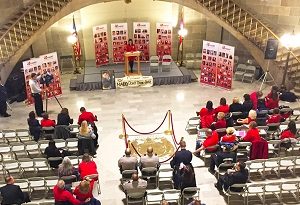 “The purpose of the House Budget Committee is to decide how best to spend the state’s money,” Rep. Scott Fitzpatrick, chairman of Appropriations Committee, said referring to the decision to restrict sobriety checkpoint funding. Fitzpatrick’s verbiage misled many legislators including members of his own budget committee, to believe that this was a budget cut affecting Missouri’s tax revenue-based general fund.
“The purpose of the House Budget Committee is to decide how best to spend the state’s money,” Rep. Scott Fitzpatrick, chairman of Appropriations Committee, said referring to the decision to restrict sobriety checkpoint funding. Fitzpatrick’s verbiage misled many legislators including members of his own budget committee, to believe that this was a budget cut affecting Missouri’s tax revenue-based general fund.
On the contrary, the Missouri Department of Transportation (MoDOT) receives a $20 million federal grant specifically for highway safety initiatives to include impaired driving countermeasures each year. MoDOT simply passes the federal funds to local law enforcement and various organizations throughout the state. MADD volunteers and staff provided this information to each member of the legislature during the many visits to the capitol.
The Facts
Law enforcement is on the front lines in the battle against drunk driving. On a daily basis, they fight against the threat to human life caused by someone else’s decision to drive impaired. Everyone’s life is at risk when a drunk driver crosses their path. The goal of sobriety checkpoints is to deter the deadly practice of driving impaired. First and foremost, these simple but effective checkpoint campaigns send a message to the public that they will be caught if they choose to drink and drive. Sobriety checkpoints also provide a safe and controlled environment for officers to process DWI arrests while preventing a crash before it happens.
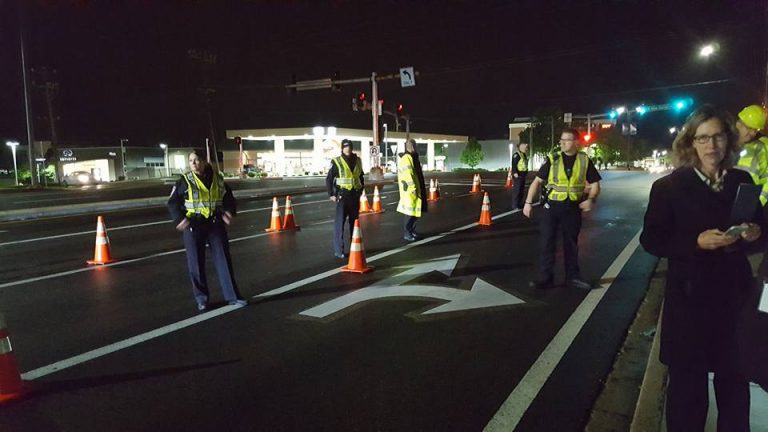 A comprehensive study by the Centers for Disease Control and Prevention (CDC) found that well-publicized sobriety checkpoints reduced alcohol-related crashes and fatalities by more than 20 percent. The CDC looked at a variety of cities, counties and states — in both urban and rural areas — and found conclusively that sobriety checkpoints reduced alcohol-related fatalities.
A comprehensive study by the Centers for Disease Control and Prevention (CDC) found that well-publicized sobriety checkpoints reduced alcohol-related crashes and fatalities by more than 20 percent. The CDC looked at a variety of cities, counties and states — in both urban and rural areas — and found conclusively that sobriety checkpoints reduced alcohol-related fatalities.
Sadly, those lawmakers who oppose the use of sobriety checkpoints are not interested in the correlation between their use and the number of lives that they save. In MADD’s experience lobbying at the capitol, members of the legislature who argued against sobriety checkpoints continually redirected the conversation to the number of arrests made using saturation patrols (another highway safety initiative that MADD also fully supports). Fitzpatrick and several others claim that DWI arrests in Missouri have gone up since last year, when law enforcement agencies across the state were first mandated to direct all of their highway safety grant funding to saturation patrol efforts. Not only did Fitzpatrick and others dismiss the importance of reducing impaired crash fatalities on Missouri roadways, but the statistical information they provided on increased DWI arrests could not be verified by the Missouri State Highway Patrol.

Throwing up a Red Herring
When lawmakers or the alcohol industry say they favor saturation patrols and oppose sobriety checkpoints because saturation patrols catch more drunk drivers, they are throwing up a red herring. A saturation patrol is an enforcement effort that targets impaired drivers by observing moving violations such as reckless driving, speeding and aggressive driving among others things. It’s difficult to quantify the number of arrests during saturation patrols because law enforcement personnel are always on patrol. There is little deterrent value to saturation patrols, while one of the primary goals of checkpoints is to heighten public awareness and influence the decision not to drive drunk or while impaired by drugs.
Lawmakers play politics, public safety an afterthought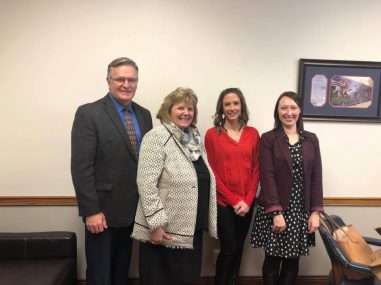
In the late afternoon of May 10, 2018, MADD learned that the final decision-making body on the issue, a joint conference committee comprised of members of the Missouri House and Senate, removed funding for sobriety checkpoints once again. MADD had great supporters in both the House and Senate but there were other concessions on the table that day and sobriety checkpoint funding was simply not the most important agenda item to committee members.
Several members of the legislature shared that it was not a good time in their political career to rock the boat. Others had MADD representatives explain the issue from the beginning each time they met. At times they were in support, at times they were against. When the Appropriations Committee’s budget hit the house floor, more than 20 possible votes needed to reinstate funding were absent. From there, the budget went to the Senate, where funding for sobriety checkpoints was reinstated in their version. This meant the discrepancy between the House and Senate would be settled in a joint conference committee. In one last meeting with a Senator’s legislative assistant, MADD was told that the Senator supported, he was just not willing to fight for sobriety checkpoints due to other priorities.
In those final weeks, the reason this policy matter was being approached through the House Budget Committee became clear. Fitzpatrick and his coalition admitted that they personally do not feel that sobriety checkpoints are constitutional. The Supreme Court has ruled that checkpoints do not violate a driver’s constitutional rights. Checkpoints take no longer than the amount of time it takes at a stop light for law-abiding people. Ron Replogle, MADD National Law Enforcement Liaison and former Colonel of the Missouri State Highway Patrol, notes, “I’ve conducted many checkpoint operations in my day. Our aim is to get cars through the checkpoint in the most efficient way possible and safely as possible. We are not looking to search cars or go on fishing expeditions, we’re just out there to keep impaired drivers off the road.”
Why MADD Strongly Supports Sobriety Checkpoints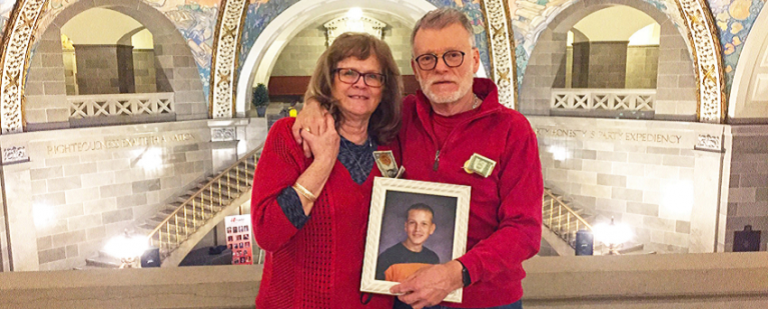
Sobriety checkpoints help catch and deter drivers who are impaired not only by alcohol, but all drugs. Because there is no test that is similar to the blood alcohol concentration measurement for impairment, checkpoints are one of the best countermeasures against drug-impaired driving. Checkpoints can be used in conjunction with the deployment of officers who receive specialized training to detect drug impaired drivers. The decision by Missouri lawmakers to remove this lifesaving tool also limits the fight against drug-impaired driving.
Law enforcement officers need every tool available to protect the public from the safety hazard caused by impaired driving. That is why MADD strongly supports sobriety checkpoints. Still, despite their proven success rate in helping prevent crashes and reduce drunk driving fatalities by 20 percent, the legislature voted to prohibit law enforcement agencies from utilizing that tool. You wouldn’t ask a carpenter to choose between using a nail and a hammer; it makes no sense. MADD urges Missouri lawmakers next session to restore spending authority for sobriety checkpoints. Allow law enforcement to utilize every resource available to keep Missouri roadways safe.
